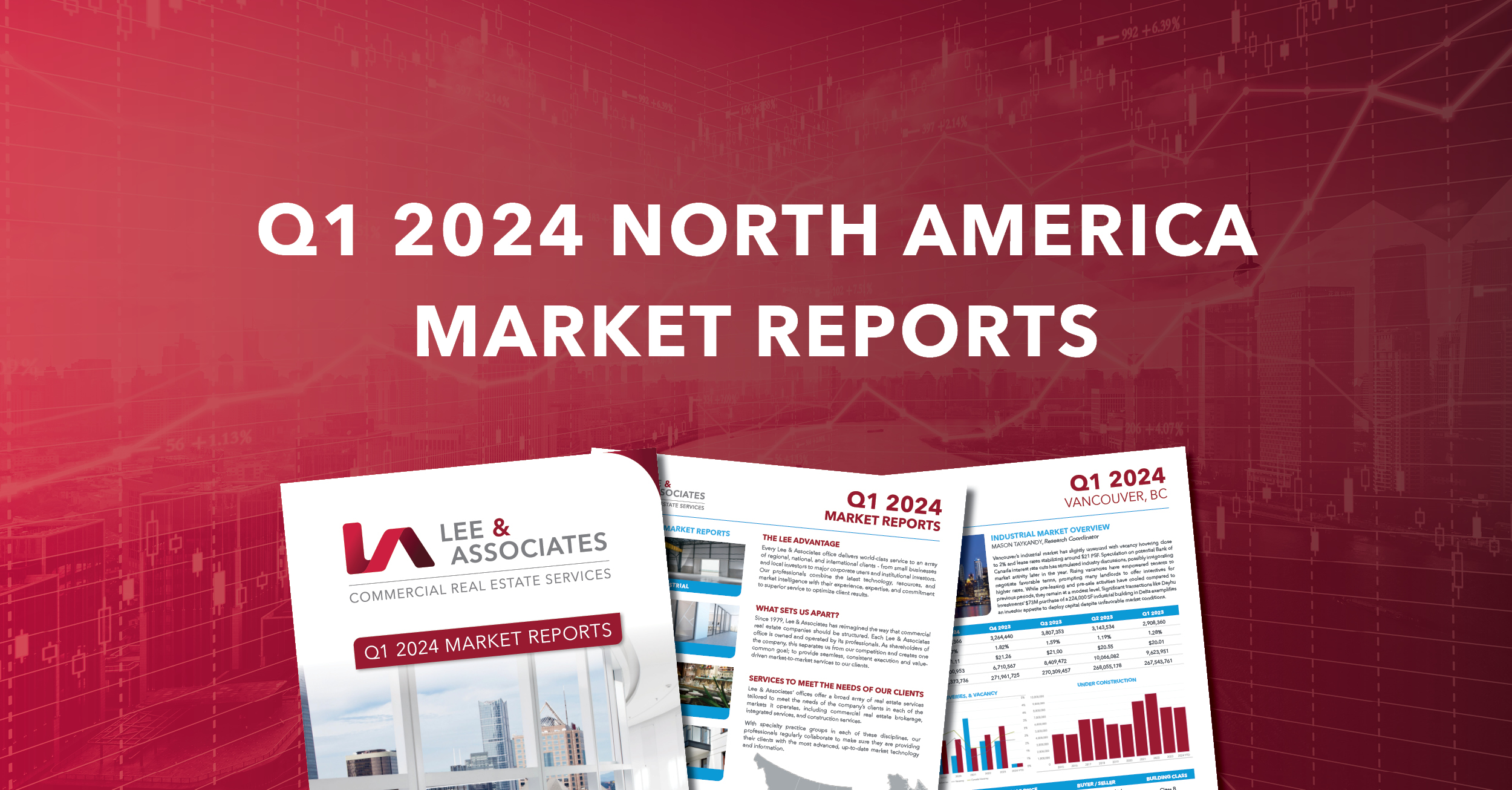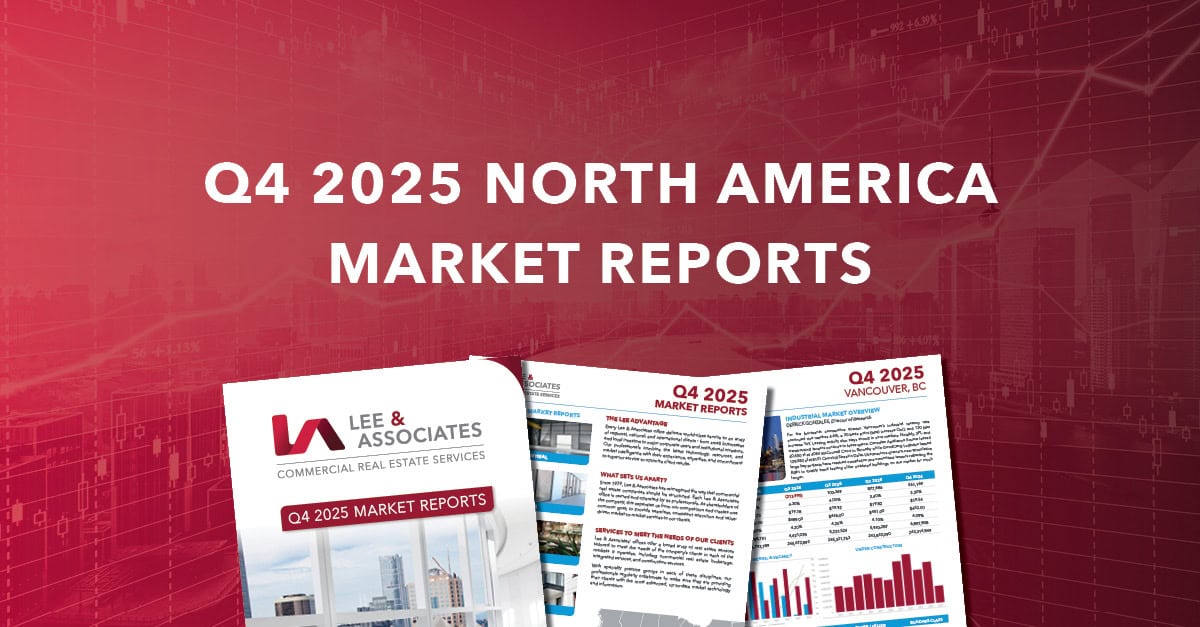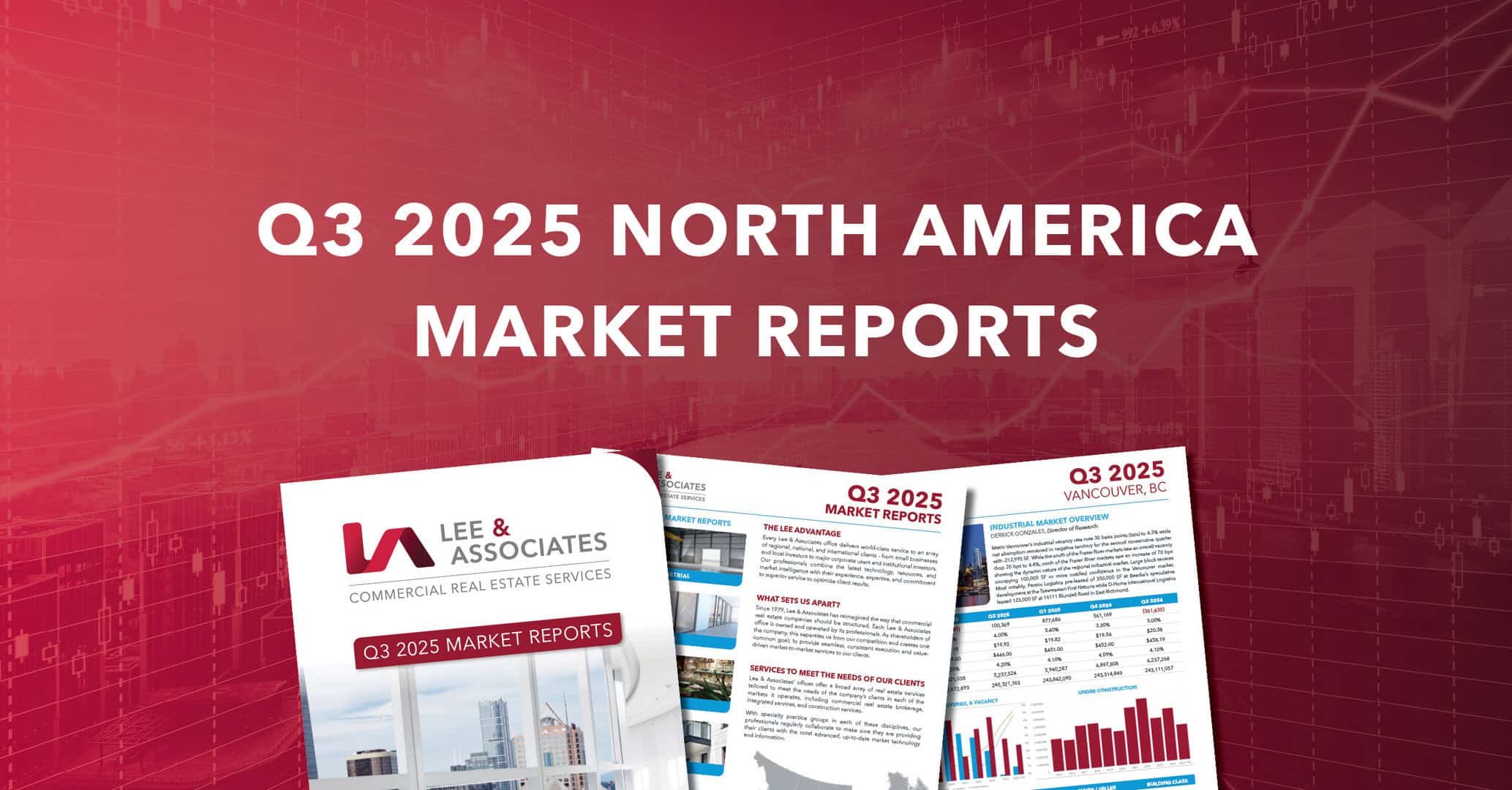Metro Vancouver Industrial Market
In the first quarter of 2024, the Vancouver industrial market exhibited a blend of stability and anticipation amidst shifting economic conditions. With a vacancy rate hovering around 2%, the market maintained a tight supply-demand balance. Lease rates have stabilized around $21.00 per square foot over recent quarters, indicating a softening of lease rate growth. Speculation about potential Bank of Canada interest rate cuts, currently at 5%, has sparked industry discussions with expectations that any reductions later in the year could stimulate market activity.
As vacancy rates edge up, tenants have found themselves in a stronger negotiating position, leveraging their increased bargaining power to secure more favorable lease terms. In response, landlords have been compelled to offer additional incentives to attract tenants and secure higher lease rates with longer terms. Pre-leasing and pre-sale activities have cooled compared to previous periods but remain at a modest level.
Despite these market nuances, significant transactions continue to occur, exemplified by Dayhu Investments’ recent purchase of a sizable 224,000 square foot industrial building at 1302 Derwent Way for $73 million, underscoring the enduring appeal and resilience of Vancouver’s industrial real estate sector.
Metro Vancouver Office Market
The Vancouver office market, renowned as one of North America’s strongest, faces significant transformations and challenges for the year of 2024. Notably, downtown vacancy rates have surged to 12% in recent quarters, emblematic of shifting demand dynamics and evolving tenant preferences. This trend has been exemplified by Bonnis Properties’ decision to suspend the development of a 17-storey project on Granville Street, citing a diminishing appetite for office space, compounded by high interest rates and construction costs.
This quarter, Westbank sold majority interest in Deloitte Summit to Allied Properties REIT, highlighting a significant ownership transfer in one of Downtown’s most prominent office buildings.
A trend towards occupying less space in buildings with superior amenities, especially evident in Vancouver’s thriving tech sector, is reshaping the market landscape. While this shift promises enhanced productivity, it also raises concerns about affordability, potentially impacting talent retention efforts. Furthermore, a substantial decline in office sales volume, down 40% year-on-year, reflects cautious investor sentiment.
Metro Vancouver Retail Market
Inflation has come down even further towards the Bank of Canada’s target of 2% during Q1 of 2024, reaching 2.8% in February. This is good news for the economy as experts are predicting interest rate cuts by mid-year. This would be vital for retailers as consumers will have more capacity for discretionary spending.
Loblaw’s at The Post opened in February to lines around the block and has proven to be the new retail anchor that downtown Vancouver needed by increasing foot traffic in the area. More openings are expected throughout the year in the ground floor space of the building. Another project with openings soon is Oakridge, with the first 100 tenants set to launch in spring of 2025. This first phase of the project will have 650,000 square feet of retail space and include many luxury retailers, reinvigorating a shopping center for Vancouverites.
Despite these large additions to the retail market, demand for space remains strong, keeping the vacancy rate low around 1%. This means that closures or downsizing from some tenants leaves prime opportunity to snatch up rarely available space from other retailers, as demonstrated by Adidas taking Victoria’s Secret 35,000 square foot downtown flagship location.
Read the full North American Report
Stay up to date – to receive our market insight as soon as they become available, subscribe here.




